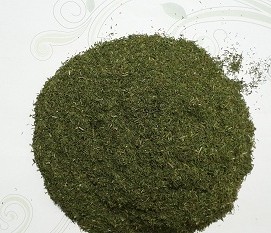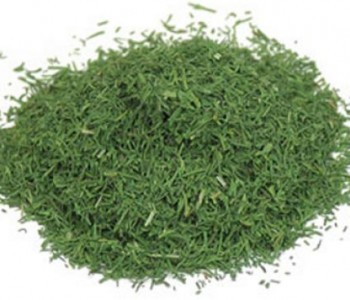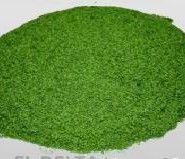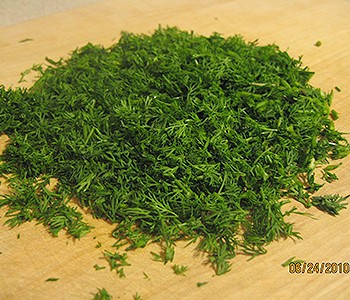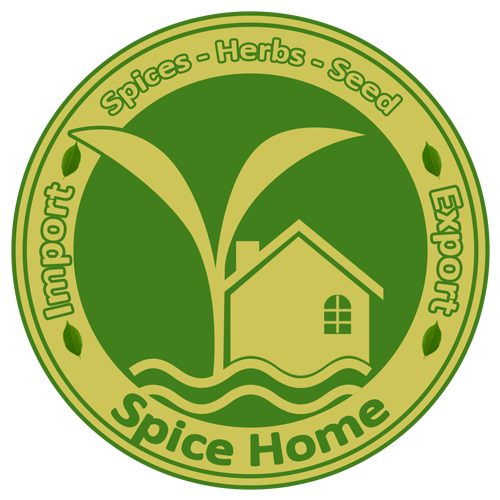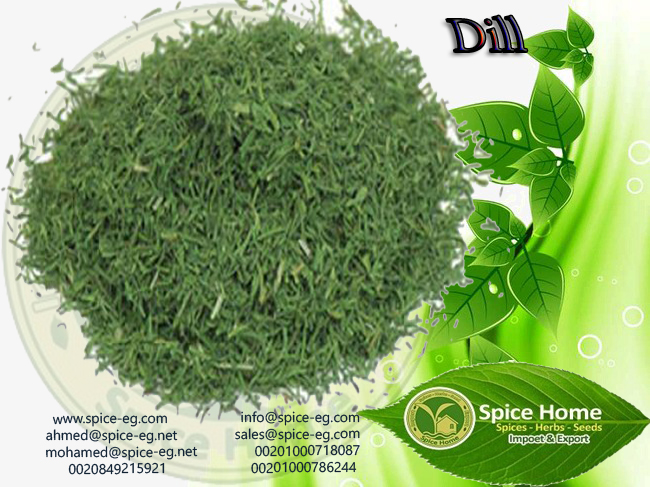
Anethum graveolens
Dill-Weed
| Botanical Name | ( Anethum Graveolens ) |
| Available Form: | Dill Tips crushed Leaves |
| Season: | Available from November till May |
| Packing: | In polypropylene bag 25 KGS Net weight |
Annual production capacity : 350 Ton
Storage conditions: Store in a cool dry place at temperature above 20 ° C and relative humidity 75%.
Storage conditions: Store in a cool dry place at temperature above 20 ° C and relative humidity 75%.
benefits of dill
dill benefits
Health benefits of dill
Dill weed contains numerous plant derived chemical compounds that are known to have anti-oxidant, disease preventing, and health promoting properties.
This popular herb contains no cholesterol and low in calories. However, it is contains many anti-oxidants, vitamins like niacin, pyridoxine etc, and dietary fibers which help to control blood cholesterol levels.
Dill leaves (sprigs) and seeds contain many essential volatile oils such as d-carvone, dillapiol, DHC, eugenol, limonene, terpinene and myristicin.
The essential oil, Eugenol in the dill has been in therapeutic usage as local anesthetic and anti-septic. Eugenol has also been found to reduce blood sugar levels in diabetics. (Further detailed studies required to establish its role.)
Dill oil, extracted from dill seeds has anti-spasmodic, carminative, digestive, disinfectant, galactagogue (helps breast milk secretion), sedative properties.
It is also rich in many vital vitamins including folic acid, riboflavin, niacin, vitamin A, ß-carotene, vitamin-C that are essential for optimum metabolism inside the body.
Vitamin-A and beta carotene are natural flavonoid antioxidants. 100 g of dill weed sprigs provide 7718 IU or 257% of recommended-daily levels of this vitamin. Vitamin A is also required for maintaining healthy mucus membranes and skin and is essential for vision. Consumption of natural foods rich in flavonoids helps body to protect from lung and oral cavity cancers.
Fresh dill is an excellent source of antioxidant vitamin; vitamin-C. 100 g contain about 85 g or 140% of vitamin C. Vitamin-C helps body develop resistance against infectious agents and scavenge harmful, pro-inflammatory free radicals.
Dill weed is a good source of minerals like copper, potassium, calcium, manganese, iron, and magnesium. Copper is a cofactor for many vital enzymes, including cytochrome c-oxidase and superoxide dismutase (other minerals function as cofactors for this enzyme are manganese and zinc). Zinc is a co-factor in many enzymes that regulate growth and development, sperm generation, digestion and nucleic acid synthesis. Potassium is an important component of cell and body fluids that helps control heart rate and blood pressure. Manganese is used by the body as a co-factor for the antioxidant enzyme, superoxide dismutase.
Dill has all the characters to consider it has one of the most valuable functional foods. 100 g of dill weed provides only 43 calories, but its phyto-nutrients profile is no less than any other high calorie food source; be it nuts, pulses, cereals, or meat group.
100 g fo this herb provides (%of RDA per 100 g)-
37.5% of folates (vitamin B11),
14% of vitamin B-6 (pyridoxine),
23% of riboflavin (vitamin B-2),
140% of vitamin-C,
257% of vitamin-A,
21% of calcium,
82% of iron and
55% of manganese.
(Note: RDA- Recommended daily allowance)
Specification
Physical / Microbiological Analysis
Physical characteristic |
|
|---|---|
|
Colour |
Green |
|
Aroma |
Grassy and herbaceous |
|
Flavour |
Characteristic flavour |
|
Aspect |
Dried Tips of Dill |
|
Particle Size |
2-3 mm |
Microbiological analysis |
|
|---|---|
|
Salmonella |
Not detected in 25g |
|
Escherichia Coli |
Absent |
|
YEAST/MOULD (CFU into 1g no more than) |
0,10 x 103 |
Chemical analysis
Chemical analysis |
|
|---|---|
|
Moisture % |
10.00 |
|
Extraneous Matter % |
Absent |
|
Living & Dead Insects % |
Absent |
|
Mineral Dirtines Contents % |
Absent |
|
Organic Dirtines Contents % |
Absent |
|
Allergens material |
It Does‘t contain |
|
Metal particles % |
Absent |
|
Pesticides Residues |
Meet EU Regulations |
|
Heavy metals (Sr, Sс) |
Absent |
|
Ash % |
15.00 |
|
Acid insoluble Ash % |
2.00 |
|
Volatile oil ml/100 g |
0.5 |

